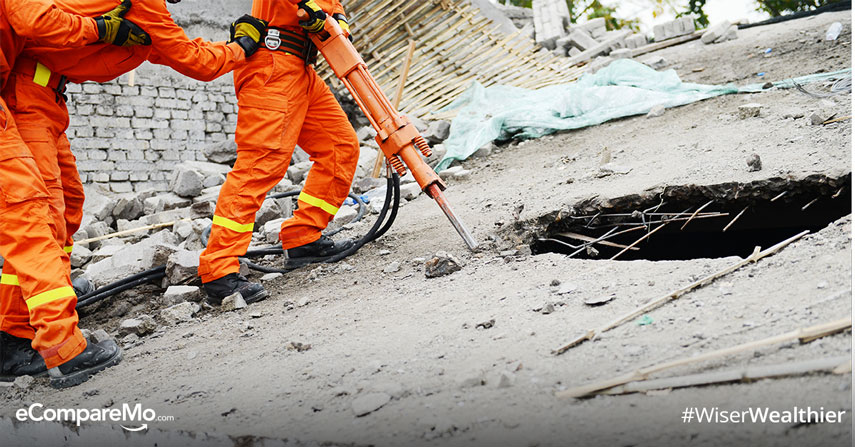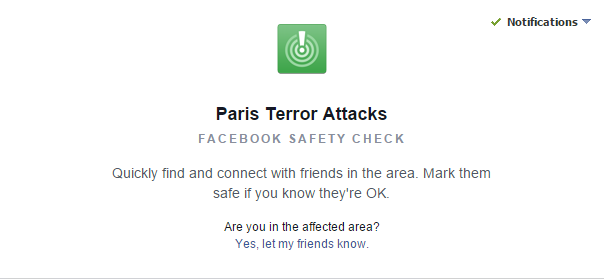What To Do In Case Of A Disaster While Traveling Abroad
3 min readIn the event of terror attacks, natural catastrophes, and other emergencies, a strong presence of mind just might save you.

Increasing your chances of survival in the face of danger relies heavily on what you do even before disaster strikes. Terror attacks like that in Paris and Brussels teach us one thing: that tourists always have to be prepared for the worst when traveling overseas.
The first step is sharing your itinerary with relatives and close friends, including your flight details, your hotel’s address and numbers, and a list of places you plan to visit. This is to make sure they know when and where to contact you in case of an emergency.
Facebook also has a Safety Check feature that lets you mark yourself as safe during a disaster. It activates once it detects that you’re situated near a danger zone. Using a location tracker, Facebook will automatically ask if you’re safe. This will appear as a notification in your newsfeed. Click or tap the “I’m Safe†button to let friends and loved ones know right away.
Facebook will also send a notification letting you know that your friends are safe. You can also check your list of friends who may be affected by the disaster by going to this link.

Here’s a list of other things to do if you’re caught in a natural disaster or terror attack while traveling abroad:
1. Find your way toward safety. Stay calm and carefully lead yourself to a safe shelter. The National Counter Terrorism Security Office (Nactso) stresses that you should run and hide, and “never play dead,” in the event of gun attacks and bombings. Terrorists have been known to fire indiscriminately at crowds, so find a thick brick wall or reinforced wall to hide in. Pay attention to warnings and disaster plan set by local authorities.
The UKÂ National Counter Terrorism Security Office advises everyone to RUN, HIDE, and TELL. Here’s a checklist of things you need to do, courtesy of news publication The Telegraph:
RUN
- -Escape if you can. This is a better option than to surrender of negotiate.
- Check your immediate surroundings. Run, if not hide.
- -Ask yourself: Can you make it through without exposing yourself to greater danger?
- -Insist that others leave with you.
- -Leave your belongings behind.
HIDE
- -If you can’t run, hide.
- -Take cover from gunfire.
- -A rule of thumb: If you can see the attacker, there’s a high likelihood that they’ll see you too.
- -Take cover from gunfire in thick brick walls/heavy reinforced walls. It’s not enough to hide from plain sight, as bullets go through glass, thin layers of cement, wood, and metal.
- -Take note of the exits.
- -Avoid getting trapped.
- -Avoid making any noise, and keep your phone in silent mode.
- -Lock or barricade yourself in.
- -Move away from the door.
TELL
- -Call the emergency hotline and tell the police what they need to know.
-Where are the suspects?
-Where are they heading? Where did you last see them?
-Describe the attacker, numbers, physical features, clothing, weapons, etc.
-Further information. Casualties, type of injury, building information, entrances, exits,hostages, etc. - -Stop other people entering the building if it is safe to do so.
2. In case of injury, seek immediate help from medical personnel in the area.
3. Find a way back to your hotel. Scott Hume, director of security operations at crisis management firm Global Rescue, tells online business news publication Quartz that travelers should go back to their hotel via a taxi or Uber. One should avoid public transportation at all costs. Once inside, seek assistance from front desk personnel and stay there until things settle down. If possible, monitor the news.
4. Once settled: Check with the Philippine Embassy. Get in touch with the embassy in the country you’re in for immediate assistance. It is highly recommended that you take note of the address and other contact information prior to your travel.
5. Contact your airline to confirm their policy for such incidences. Make flight rearrangements if possible and request for additional assistance.
5. Contact your travel insurance provider. Check for hotel and airfare reimbursements and how else they can assist you. A complete list of travel insurance coverages can be found on this link. —eCompareMo.com
